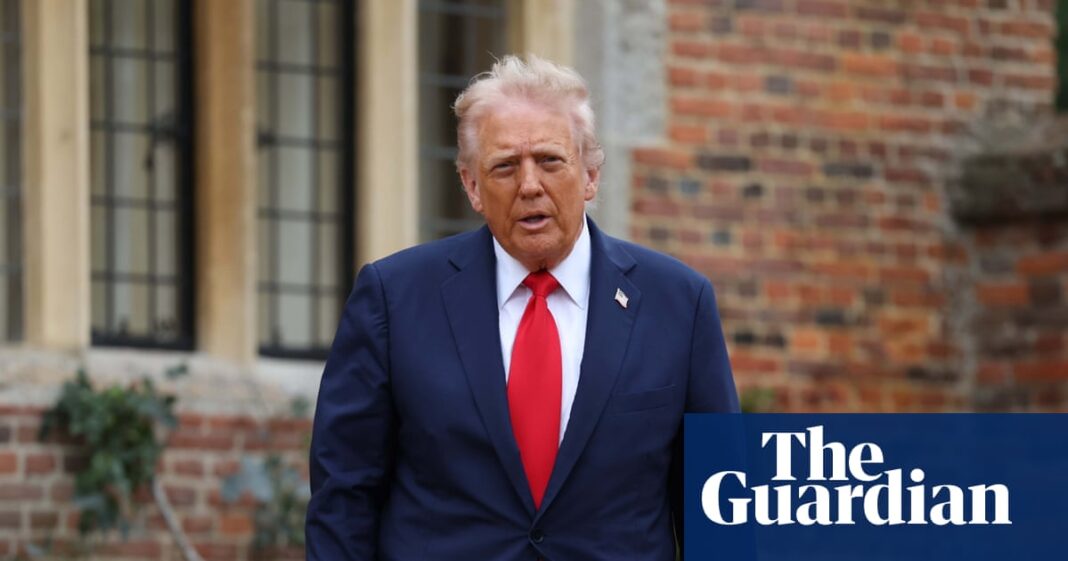A Political Firestorm: President’s Lawsuit and the State of Free Speech
This week, American politics found itself at the heart of a new controversy as the president made headlines by announcing a staggering $15 billion lawsuit against the New York Times. His claim centers on allegations that the newspaper has misrepresented his actions and statements, fueling a narrative he believes is damaging not only to his reputation but also to the nature of political discourse in the country. The legal battle promises to be as contentious as it is unprecedented, raising questions about the implications for the press and freedom of speech.
The Lawsuit: Allegations and Implications
The lawsuit against the New York Times is a bold move, reflecting a broader trend of increasingly adversarial relationships between the media and political figures. The president argues that the newspaper’s reporting has not only been factually incorrect but also carries an intent to malign his character and undermine his administration. Legal experts are already pondering the potential outcomes of such a case, especially given the high threshold for public figures to win defamation suits. This tension underscores a vital element of American democracy: the balance between free speech and the right to a fair representation.
Late-Night Political Commentary: Kimmel’s Indefinite Suspension
Adding fuel to the fire, the suspension of Jimmy Kimmel Live! has stirred discussion about the state of political humor in America. Kimmel’s criticisms of the president, combined with his candid commentary, led to the show’s abrupt halt, which many see as a direct attack on comedic expression. This incident reveals the precarious position that comedians and satirists occupy in today’s polarized climate. Late-night shows have long served as a platform for political critique, but with a looming threat of censorship, the future of such programming remains uncertain.
JD Vance’s Commitment to Crack Down on ‘Far Left’ Groups
In a parallel development, Senator JD Vance has announced his intention to pursue a crackdown on what he terms “far left” groups. His stance resonates with a segment of the American populace that feels sidelined by the mainstream narrative. Vance’s approach raises critical questions about the political landscape, the definition of extremism, and the capacity of marginalized voices to express dissenting opinions. The implications of such actions could lead to a chilling effect, where individuals or groups might hesitate to vocalize their beliefs for fear of retribution.
The Future of Free Speech: Reflections from Bhaskar Sunkara
In an insightful conversation with Bhaskar Sunkara, the president of The Nation magazine, the focus turns to the future of the constitutional right to free speech. Sunkara emphasizes the vital role of diverse voices in public discourse, particularly those at odds with prevailing power structures. He argues that the current political climate demands vigilance and activism from those who advocate for a myriad of viewpoints, especially among those who oppose the president’s rhetoric. The discussion highlights the resilience of democratic principles, urging that even in times of turmoil, free speech remains paramount.
Navigating a Divided Landscape
As these events unfold, the landscape of American free speech becomes increasingly complex. Voices from across the political spectrum face unique challenges in advocating for their beliefs and expressing dissent. With high-stakes lawsuits, media suspensions, and calls for ideological purification, the discourse becomes not just about speech, but about identity, power, and the future of democracy itself.
Engagement in this political environment necessitates an understanding of both the protections afforded by the Constitution and the societal responsibilities that come with such freedoms. Navigating this divided landscape will undoubtedly shape the contours of American politics for years to come, challenging citizens to defend their rights while holding leaders accountable.



